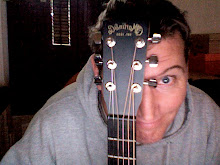So the results are in from the MoveOn.org virtual primary and none of the candidates polled the required 50 per cent to win the endorsement.
Indeed, apart from the top three of Howard Dean, Dennis Kucinich and John Kerry; no-one else finished in double digits, but that might be largely due to the sheer size of the field.
The poll was open for just over 48 hours, during which time a total of 317,639 votes were cast.
As the AP reports however; probably more important than the votes were the 49,132 people who pledged to contribute to a candidate during the process.
MoveOn.org estimates that based on the average donation per voter of $35, something in the region of $1.75m could be raised by the candidates.
The AP story quotes Michael Cornfield at GWU as describing the event as a "straw poll with a cash prize".
It's hardly surprising that Dean came out on top - with an estimated 44 per cent of the votes - given his well-publicised, and well-organised efforts to gather virtual volunteers; particularly through the MeetUp site , where as of this evening more than 40,000 potential supporters have registered.
Comment?
Indeed, apart from the top three of Howard Dean, Dennis Kucinich and John Kerry; no-one else finished in double digits, but that might be largely due to the sheer size of the field.
The poll was open for just over 48 hours, during which time a total of 317,639 votes were cast.
As the AP reports however; probably more important than the votes were the 49,132 people who pledged to contribute to a candidate during the process.
MoveOn.org estimates that based on the average donation per voter of $35, something in the region of $1.75m could be raised by the candidates.
The AP story quotes Michael Cornfield at GWU as describing the event as a "straw poll with a cash prize".
It's hardly surprising that Dean came out on top - with an estimated 44 per cent of the votes - given his well-publicised, and well-organised efforts to gather virtual volunteers; particularly through the MeetUp site , where as of this evening more than 40,000 potential supporters have registered.
Comment?

